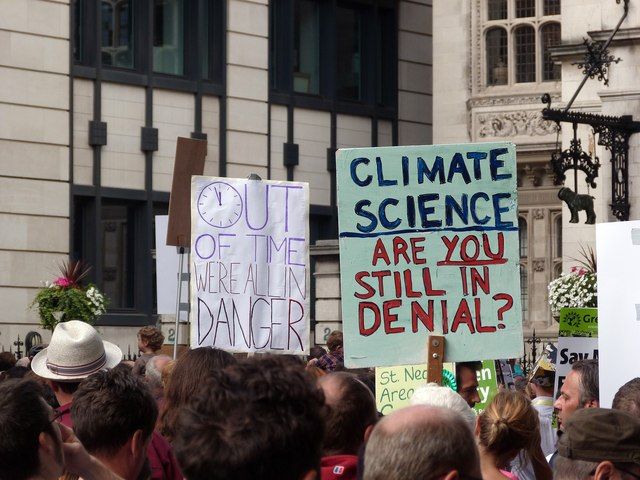Ambitious climate targets can define the legislation that is adopted.
Ambitious climate targets drive development and can be achieved, even if they seem difficult to achieve.
This is the approach of the Danish Climate Council, which see good reason for Denmark to continue to lead the way.
The Climate Council is an independent expert body that advises the government on how the transition to a climate-neutral society can take place.
The Climate Council must annually assess whether the government’s climate efforts contribute to achieving the Danish climate targets.
New targets to be made
When Denmark politically decided in 2019 to reduce its greenhouse gas emissions by 70 percent by 2030, it seemed very difficult to achieve.
Now it seems realistic that the target can be met. The target has, for example, led to a climate tax in industry, support schemes for CO2 capture and a tripartite agreement in agriculture.
Now Denmark must set climate targets for 2035.
The analysis points to scenarios where emissions are either reduced by 80, 85 or 90 percent.
With the current climate policy, including the tripartite agreement, Denmark will achieve a 78 percent reduction in greenhouse gas emissions in 2035 compared to 1990.
78 percent is conditional on the policy being successfully implemented as planned.
Be ambitious
The Climate Council recommends aiming for a greater reduction in emissions than 80 percent but acknowledges that there are dilemmas.
On the one hand, there is a contribution to the global climate effort and on the other hand, the various consequences of increasing the target.
This will have consequences for Denmark’s overall economy, cohesion in the population, social balance and the competitiveness of companies.
The Climate Council does not recommend a specific figure. However, the council highlights three arguments for aiming for more than an 80 percent reduction, which is the least ambitious target.
Denmark as a pioneer country
1. The state of the climate
The climate outlook is becoming increasingly bleak. Considering this, all countries must make every effort to reduce emissions. This suggests that Denmark should set a high territorial target and supplement it with a strengthened global climate effort.
2. Pioneer country
If Denmark wants to be a pioneer country, a reduction of “only” 80 percent is out of step with developments. In comparison, the UK has decided on a target of 81 percent in 2035, while the European Commission has proposed a target of 90 percent for the EU as early as 2040.
3. The path towards climate neutrality
In 2035, there are only ten years until 2045, when the government has a target of climate neutrality. The final reductions towards this target may prove to be the most difficult, both technically and socially. Therefore, it may be sensible to increase the reduction rate towards 2035.
According to the Climate Council, it will not take much to achieve a reduction of 80 percent.
It is particularly cost-effective to increase the removal of agricultural land, which also contributes positively to the aquatic environment, biodiversity and other societal considerations.
To achieve a reduction of 85 percent, carbon capture and storage (CCS) must be promoted, in addition to limiting emissions from livestock production in agriculture.
The cost of the additional effort appears to be manageable and will remain below DKK 1,500 per ton CO2e.
90 percent reduction will be expensive
Achieving a 90 percent reduction will be expensive. This will require further acceleration of the ongoing electrification of the transport sector. In addition, even more CCS may be necessary.
Although the Climate Council is in favor of the government setting a high target, experts believe that this will mean major changes to society.
This could create major social consequences in a shorter time. The changes may be perceived as unfair among some groups or in some geographical areas, for example if they reinforce existing inequalities or create new ones.
Conversely, ambitious climate action itself may be perceived as more just considering the global climate crisis or across generations.
Climate action will also create new opportunities and benefits for some groups in society.












